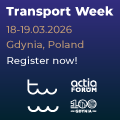Atlantic Canada Sea Scallop Fishery Entered into Assessment
2012 05 11
- Details
The Full Bay Scallop Association (FBSA) in Canada has entered an Atlantic sea scallop (Placopecten magellanicus) fishery into independent, third-party assessment to the Marine Stewardship Council’s standard for sustainable and well-managed fisheries. If successful, products would be eligible to display the blue MSC ecolabel. The FBSA fleet is comprised of approximately 55 operating vessels ranging in size from 45 to 65 feet.
About the Fishery
The fishery takes place in Canadian waters in the North West Atlantic primarily in the Bay of Fundy and Area 29, a nearby fishing zone adjacent to Nova Scotia. Scallop beds in these areas have been commercially fished since the mid-1800s. Total Allowable Catch (TAC) in this area in 2010-11 was 1,265 tonnes, of which the FBSA client share is 69.5 percent. In 2009, the FBSA fleet landed 831 mt for an approximate value of $12 million. The gear type used is Digby fishing dredge, which is a steel cage towed along the seafloor.
The Canadian Department of Fisheries and Oceans (DFO) manages the fishery and establishes annual catch limits, fishing areas and management measures, including limited entry licensing, shell size and scallop meat counts based on weight, individual transferable quotas, dockside and vessel monitoring. Every vessel in the FBSA uses a Vessel Monitoring System (VMS) while fishing. In addition, there is 100% dockside observer weigh-out of the harvest and submission of documents for data entry.
The season is open all year with a concentration from early June and to early October. Fishing in Area 29 includes at-sea observer coverage developed in collaboration with the local lobster industry to monitor any lobster bycatch. In the Bay of Fundy, vessels can retain landed monkfish, but all winter skates must be returned to the water with the least amount of harm. In Area 29, all bycatch must be returned causing the least amount of harm.
The assessment will be conducted by Food Certification International, an accredited certifier for MSC assessments. Stakeholders wishing to participate in the assessment process may contact the certification body, specifically Joanna Kabut, Fisheries Administrator at This email address is being protected from spambots. You need JavaScript enabled to view it..
What the fishery says
Dick Stewart, Manager of the Full Bay Scallop Association, says “the full bay fleet is the longest standing scallop fishery in the area producing well-known Digby scallops for restaurants and retailers across North America. We look forward to the time we can claim MSC certification for our products.”
What the MSC says
Kerry Coughlin, Director of the MSC Americas Region says “we welcome the Full Bay Scallop Association into assessment and note the arrival of independent certifier Food Certification International as an active company in our region.”
About the Marine Stewardship Council (MSC)
The Marine Stewardship Council (MSC) is an international non-profit organization set up to help transform the seafood market to a sustainable basis. The MSC runs the only certification and ecolabeling program for wild-capture fisheries consistent with the ISEAL Code of Good Practice for Setting Social and Environmental Standards and the United Nations Food and Agricultural Organization Guidelines for the Eco-labeling of Fish and Fishery Products from Marine Capture Fisheries. These guidelines are based upon the FAO Code of Conduct for Responsible Fishing and require that credible fishery certification and ecolabeling schemes include:
· Objective, third-party fishery assessment utilizing scientific evidence;
· Transparent processes with built-in stakeholder consultation and objection procedures;
· Standards based on the sustainability of target species, ecosystems and management practices.
The MSC has offices in London, Seattle, Tokyo, Sydney, The Hague, Glasgow, Berlin, Cape Town, Paris, Madrid and Stockholm.
In total, over 270 fisheries are engaged in the MSC program with 156 certified and 121 under full assessment. Another 40 to 50 fisheries are in confidential pre-assessment. Together, fisheries already certified or in full assessment record annual catches of close to nine million metric tonnes of seafood. This represents over 10 percent of the annual global harvest of wild capture fisheries. Certified fisheries currently land over six million metric tonnes of seafood annually – close to seven percent of the total harvest from wild capture fisheries. Worldwide, more than 14,000 seafood products, which can be traced back to the certified sustainable fisheries, bear the blue MSC ecolabel.
For more information on the work of the MSC, please visit www.msc.org.
Source MSC
The magazine SEA has been published since 1935
International business magazine JŪRA MOPE SEA has been published since 1999
The first magazine in Eurasia in the four languages: English, Chinese, Russian and Lithuanian
|
|





.jpg)





